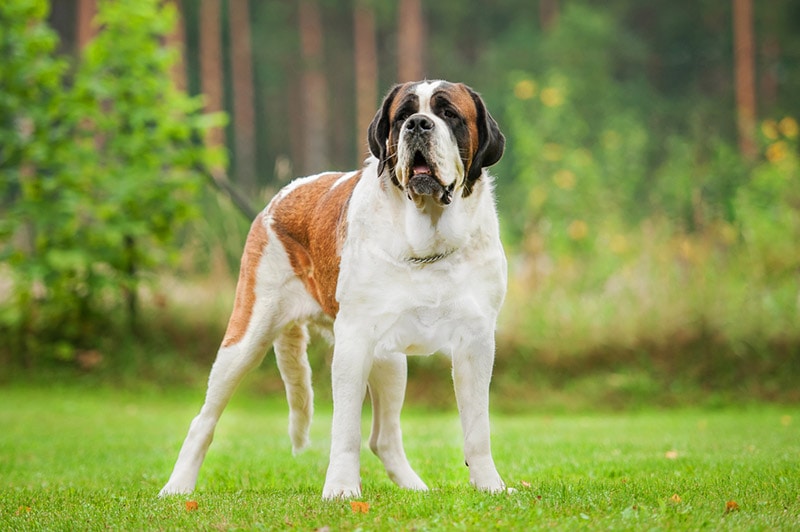How Fast Can a Corgi Run? The Answer May Surprise You!
Updated on
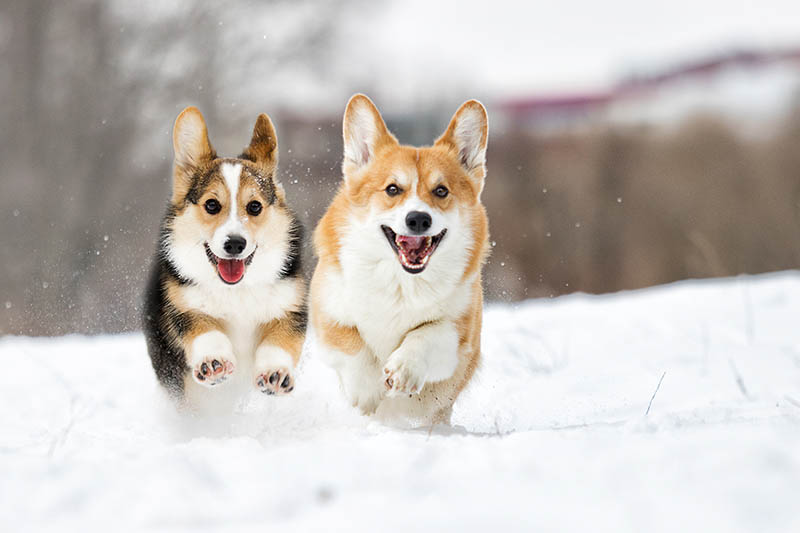
If you were hoping for a revelation about the Corgi’s secret super-speed ability, unfortunately, you’re going to be disappointed! Corgis do not win top prizes in the speed division, especially compared to many other canine breeds. Although they may display bursts of speed, some references list the beloved short-legged breed as falling in the top 20 slowest dogs in the world.
That’s okay, because they have tons of other redeeming qualities, and they’re certainly nowhere near the bottom of the pile when it comes to general athleticism. You may even be surprised at the speeds they can attain over short distances!
There are two types of Corgi: the Pembroke Welsh Corgi and the Cardigan Welsh Corgi (or “Cardi”, as it is affectionately known). Both types exhibit a similar top speed of about 23–25 miles per hour.
Can Corgis Run Faster than Humans?
Believe it or not, this diminutively sized canine can certainly outrun you over short distances, as the average human sprints at approximately 18 miles per hour. Note that this is based on an average calculated for the 100-meter sprint for humans classified as athletes—across all age groups and for both sexes. For the average run-of-the-mill non-athlete, you could expect this number to be considerably lower. So, a Corgi in good health will have no problem beating you to the ball!
Take a look at the table below to see how Corgis stack up against some other dog breeds and land animals:
| Animal | Top Speed |
| Corgi | 23–25 mph |
| Greyhound | 40–45 mph |
| Jack Russell | 30–38 mph |
| Cow | 20–25 mph |
| Rat | 6–8 mph |
| Cheetah | 65–75 mph |
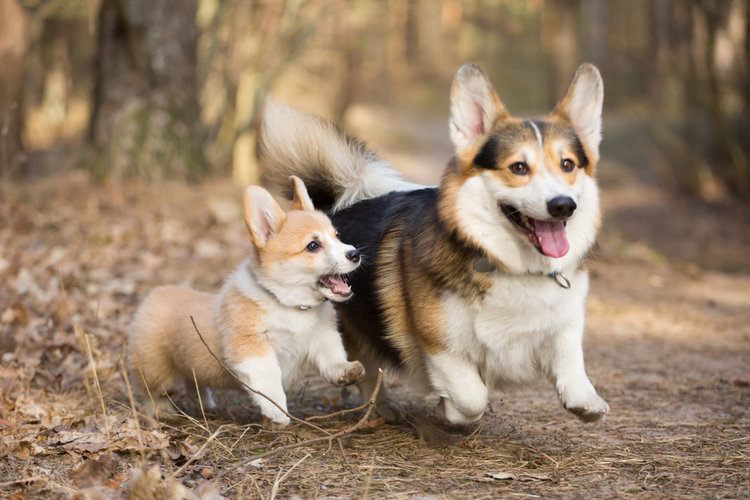
A Little Bit More About Corgis
The Corgi is a small, short-legged dog described as having a fox-like appearance, probably because of its erect ears. They weigh between 25 to 38 pounds, and are around 10 to 12 inches tall. Of the two types of Corgi that exist, the Pembroke Welsh Corgi is the most popular choice as a pet and, therefore, the more commonly encountered. It has a short tail and ears with sharp points, in contrast to the Cardi, which has a long tail and rounded ear tips.
Unbelievably, the Corgi’s history can be traced back to the time of the Celts in 1200 BC, and it is thought to share ancestors with the Dachshund. More recent records of the Pembroke’s arrival in Wales are dated back to around 1100 AD. The Corgi was originally bred to work with cattle, and it remains to this day an active and tough little canine. Although many may find cushy suburban homes these days, as a breed, they are equally at home with everyday farm life happenings.
Corgis are familiar to many canine enthusiasts due to the exposure they’ve gained in the last 100 years or so as beloved pets of the British Royal family, particularly to the late Queen Elizabeth II.
Can I Jog with My Corgi?
If you are an avid jogger or runner, and generally cover three or more miles at a brisk pace in a single outing, then a Corgi is not a good choice for a pet that will double as a running buddy.
Their disproportionate build—short legs and a long back—make sustained repetitive activities very challenigng, such as distance running. They are much better sprinters than long-distance runners. As you might imagine, exposure to such activities could make them susceptible to injury and long-term health problems like back issues. Additionally, their thick coats are cause for consideration during summertime exertions.
If you prefer shorter jogs around the two or three-mile mark, or hikes of about seven or eight miles, then a healthy Corgi could make the perfect jogging partner. Bear in mind that puppies and older dogs will not be able to handle either of these undertakings. Remember to keep an eye on your running buddy for signs of sore paws or any other injury or discomfort while running or hiking. Wherever possible, choose running on natural terrain in preference to tar or pavement, which will jar their joints and could rub their paws raw. And, as always, don’t forget to keep them hydrated too!
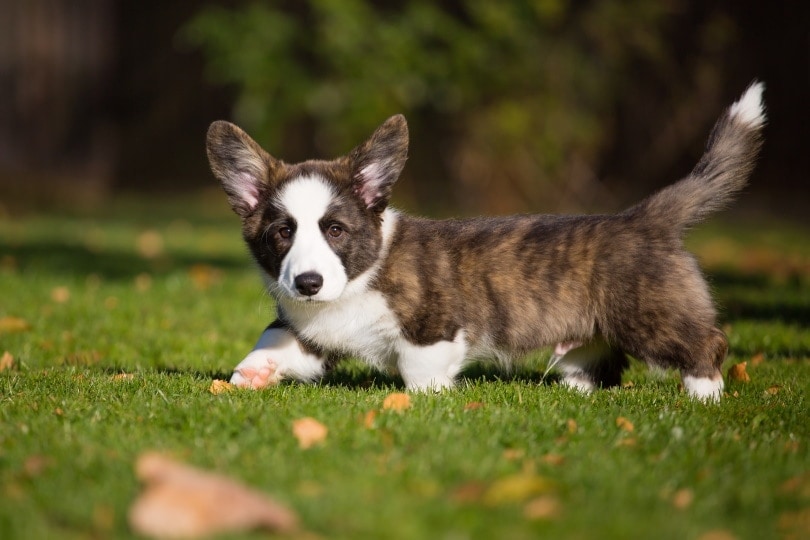
The 6 Factors That Influence How Fast a Corgi Can Run
Several factors will influence how fast a Corgi can run, or indeed the level of athleticism they can attain.
1. Age
A factor that has already been alluded to is age. A puppy will never be as quick as an adult dog and, likewise, a senior dog is likely to also be waning in athletic prowess.
2. Spine Issues
Corgis have a unique running style, described as being like a coiled spring. Their running gait centers around the spine—with the front legs reaching forward in unison, while the back legs push off together to follow through. Because of the demands placed on the spine, only a dog in prime health would be able to sustain high-energy activities or attain fast speeds. Any existing back issues will impact speed and agility.
3. Weight
Corgis are also prone to obesity, and one carrying more weight than it should is going to struggle to reach top speed.
4. Health Issues
The breed is also genetically prone to hip dysplasia and, if this condition is present, it will not only affect their ability to get up to speed, but even just to move around with ease.
5. Genetics
The specific dog’s bloodlines can also play a role in how fast they can be. Certain dogs just have “fast” genes, for which these Corgis can be selected to be specifically bred for agility competitions.
6. Personality
A final consideration is the dog’s personality. A corgi may be athletically gifted, but if they simply lack the desire and will to run fast, their natural talents may never be put on display for the world to admire!
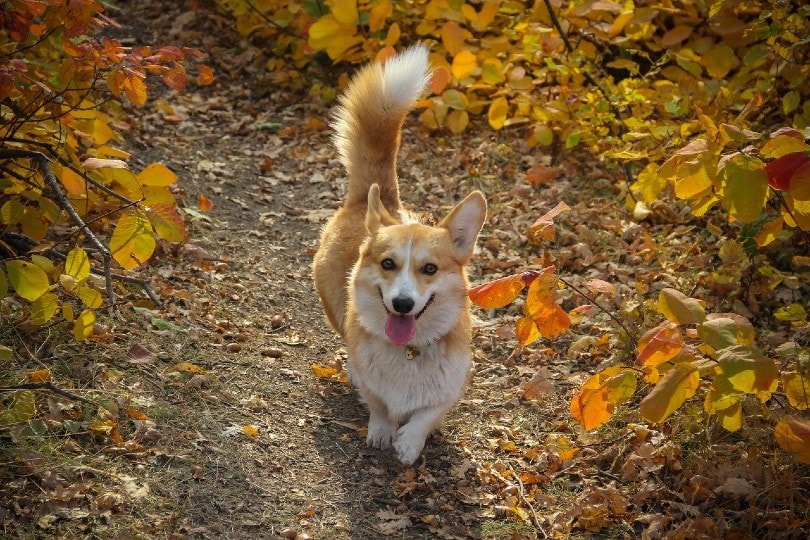
What is Special About Corgis?
Corgis stand out from the pack because of their big, bold, and friendly personalities. If there is a Corgi in the vicinity, you will surely know about it! They are small dogs with big attitudes—big, friendly attitudes! They are noted for being one of the most good-natured and happy dog breeds and, as such, they make great family pets.
Their working dog history and impressive athleticism make them a popular choice for agility, herding, obedience, and conformation competition—in which they excel.
Corgis are hugely intelligent and rank as the 11th smartest dog breed. This comes with its benefits and potential disadvantages. It is always so rewarding to interact and work with brainy canines, but they generally require regular stimulation and interaction—otherwise, they may end up becoming bored and causing havoc!
In Conclusion
Your Corgi is not going to break any land speed records, but they will almost always beat you to their throw-toy or those dropped food scraps. Despite their somewhat ungainly appearance, Corgis boast impressive athletic abilities, which can easily provide hours of fun for these dogs and their humans alike.
Featured Image Credit: Happy monkey, Shutterstock


